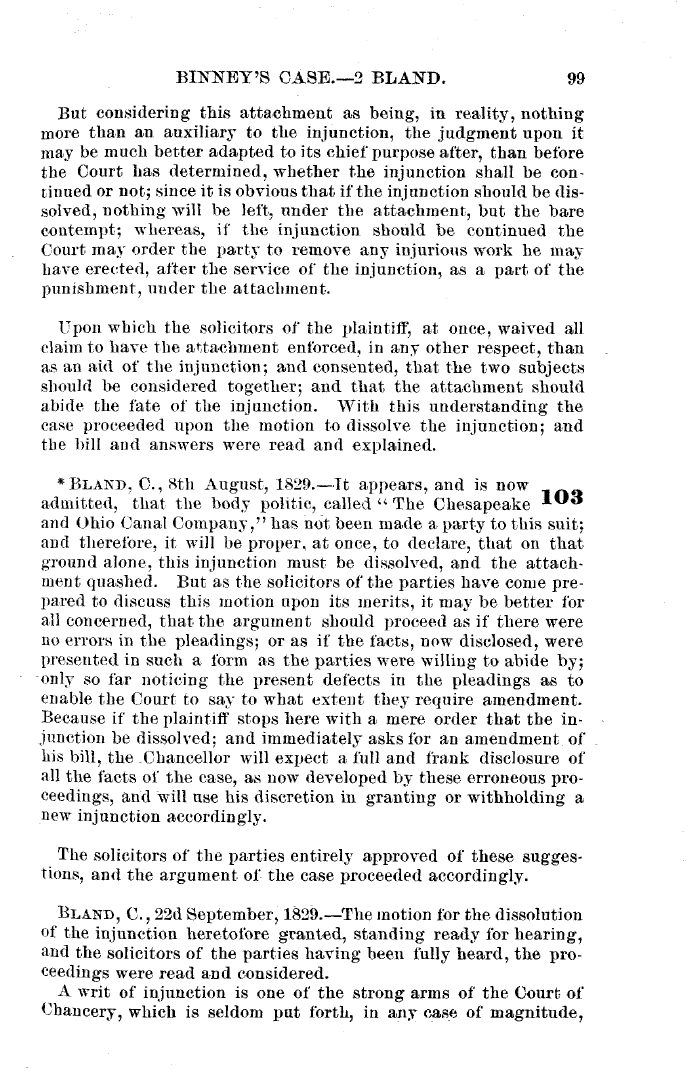|
BINNEYIS CASE.-2 BLAND. 99
But considering this attachment as being, in reality, nothing
more than an auxiliary to the injunction, the judgment upon it
may be much better adapted to its chief purpose after, than before
the Court leas determined, whether the injunction shall be con-
tinued or not; since it is obvious that if the injunction should be dis-
solved, nothing will be left, under the attachment, but the bare
contempt; whereas, if' the injunction should be continued the
Court mad- order the party to remove any injurious work he may
have erected, after the service of the injunction, as a part of the
punishment, under the attachment.
1; pon which the solicitors of the plaintiff; at once, waived all
claim to have the attachment enforced, in anv other respect, than
as an aid of the injunction; and consented, that the two subjects
should be considered together; and that the attachment should
abide the fate of the injunction. With this understanding the
case proceeded upon the motion to dissolve the injunction; and
the bill and answers were read and explained.
* BLAND, C., 8th August, 1829.-.It appears, and is now
admitted, that the body politic, called 11 The Chesapeake 103
and Ohio Canal Company, " has not been made a party to this suit;
and therefore, it will be proper, at once, to declare, that on that
ground alone, this injunction must be dissolved, and the attach-
ment quashed. But as the solicitors of the parties have come pre-
pared to discuss this motion upon its merits, it may be better for
all concerned, that the argument should proceed as if there were
no errors in the pleadings; or as if the facts, now disclosed, were
presented in such a form as the parties were willing to abide by;
only so far noticing the present defects in the pleadings as to
enable the Court to sad- to what extent they require amendment.
Because if' the plaintiff stops here with a mere order that the in-
junction be dissolved; and immediately asks for an amendment of
his bill, the -Chancellor will expect a full and frank disclosure of
all the facts of the case, as now developed by these erroneous pro-
ceedings, and will use his discretion in granting or withholding a
new injunction accordingly.
The solicitors of the parties entirely approved o#' these sugges-
tions, and the argument. of the case proceeded accordingly.
BLAND, C., 22d September, 1829.-The motion for the, dissolution
of the injunction heretofore granted, standing ready for hearing,
and the solicitors of the parties having been fully heard, the pro-
ceedings were read a.nd considered.
A writ of injunction is one of the strong arms of the Court of
Chancery, which is seldom put forth, in any case of magnitude,
|

